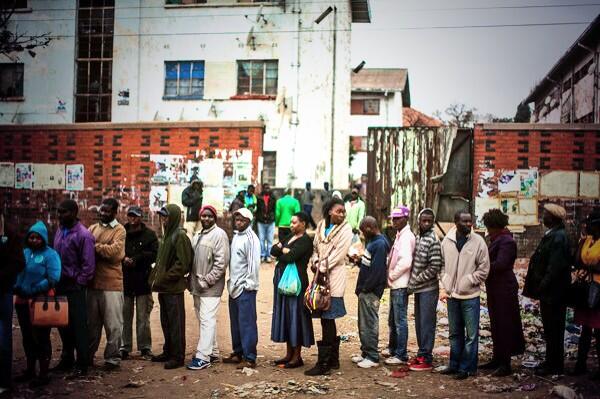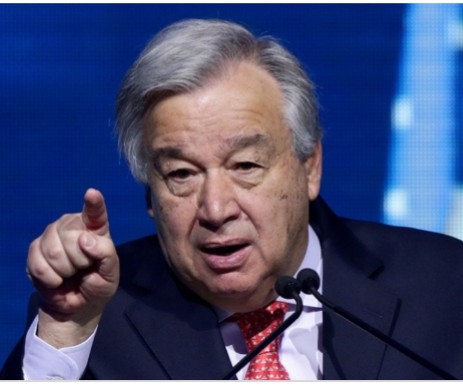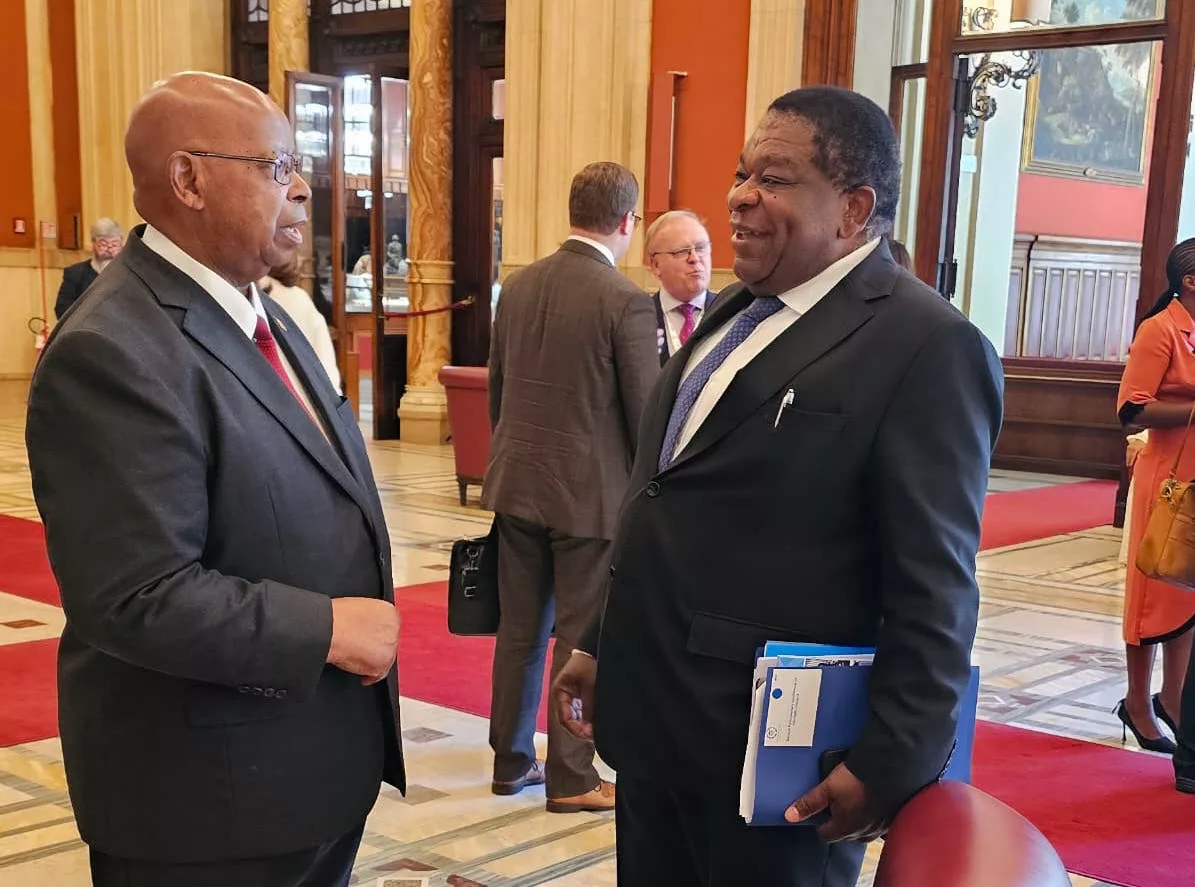By Farai Chirimumimba
Electoral Cycle
Zimbabwe hold harmonized elections after every five years. This year the country will hold the harmonized elections in July/ August.
What are harmonised elections?
As alluded above, Zimbabwe will in July/August hold harmonised elections that is where elections for President, Parliament (National Assembly or Lower House – 210 members and Senate or Upper House- 80 members), local authorities (Councillors-1,958 members) and provincial councils (10 in each province in addition to the members from Parliament from that particular province). In addition there are 60 seats reserved for women. The parliament of Zimbabwe is made up of the National Assembly and Senate if we add the numbers in both houses we will have a total of 350 members including the 60 seats (six from each province) reserved for women we have just mentioned. Although women have a guaranteed automatic 60 seats, this doesn’t mean that women should not contest in the 210 seats mentioned above.
Voting System
Zimbabwe uses the First past the post (FPTP) principle when voting for the 210 members of National Assembly (MPs) meaning that the candidate with the highest number of votes is the winner of the seat. What is interesting is that when one votes for an MP he/she will be indirectly voting for any of the 60 Senators (plus16 others are traditional Chiefs two from each province excluding Harare and Bulawayo who are elected by their peers plus Chairperson and Deputy of the Traditional Chiefs Council. Two other seats are reserved for people with disability which makes 80 members), 60 women seats and six provincial council members as well.
What it simply means is that when for instance if you vote for an MDC-T MP in Mabvuku above voting for that particular candidate you are also indirectly voting for a MDC-T Senator, MDC-T provincial Council MP and also an MDC-T MP from the 60 seats reserved for women. So it’s a 1 vote for 4 candidates. In other words the election of 60 Senators, 6 provincial council MPs and 60 women quota is through proportional representation that is the higher the number of votes a party gets when votes vote for the 210 MPs, the more seats it gets from the 60 Senate seats, 6 provincial seats from each province and from the 60 women quota. The election of Senators, provincial councils is based on party-list system. Each participating political party provides a list of potential candidates that it wants to fill the proportional representation posts.
The president is voted for using a separate ballot paper. For a candidate to win the presidential race, he/she should get 50 percent of the votes plus 1 (51 percent) of the total votes. If no candidates get 51 percent of the votes, the two candidates with the highest number of votes square-off again at a later date in a second round or run off. When a presidential vote goes to the second round like what happened in 2008 between former president Robert Mugabe and the late Morgan Tsvangirai, the First past the post (FPTP) we discussed above comes into force. In this case, the candidate that gets the highest number of votes wins the presidency.
Are all members of Parliament directly elected?
As discussed above only the President and the 210 members of the National Assembly (commonly referred to as MPs) are directly elected by voters on elections day. Senators, provincial Council members and the 60 women parliamentarians are elected through proportional representation where a party is given these seats in relation to the number of votes they obtain in each province.
Can the President appoint people to be MPs or Senators?
The President can appoint two representatives for peoples with disabilities (PWDs) as Senators. He/she can also appoint up to a maximum of 5 ministers who are neither MPs nor Senators on account of their expertise. These ministers can attend parliament but will not have voting rights for example when passing a bill. Examples of ministers who this route are Winston Chitando, Minister of Mines and Mining Development, retired Lieutenant General Sibusiso Moyo, Minister of Foreign Affairs and International Trade, retired Air Chief Marshal Perence Shiri, Minister of Lands, Agriculture and Rural Resettlement and Amon Murwira, Minister of Higher and Tertiary Education, Science and Technology Development The Vice-Presidents and Attorney-General (government chief lawyer) attend parliament by virtue of their offices.
The proclamation of the election date
It is the prerogative of the President to proclaim the date for holding the harmoniSed elections in consultation with the Zimbabwe Election Commission (ZEC). When the President proclaim the day and date of the harmoniSed elections, he makes a provision in case a presidential second round or run-off is needed like what happened in 2008 when no candidate was able to garner 50 percent plus 1 votes as required in the first round to become the President. The president goes further to give instructions on when the Nominations Court seats.
Role of Nomination Court
The Nomination Court seats at specified period after the proclamation of the date of the elections. Political party’s candidates and independent candidates submit their papers including their CV’s and police clearance that shows they have no criminal history etc… The Nomination Court has powers to disqualify an aspiring candidate. The Nominations Court is very important and even the current President Emmerson Mnangagwa has to file his papers with the Nominations Court like all other candidates. If he fails, he will not be a candidate in the presidential election which is part of the harmonised elections. All the candidates that you will see on the ballot paper will have been vetted and qualify during the sitting of the Nominations Court. Any registered voter can inspect all the papers filed at the Nominations Court.
Zimbabwe Election Commission (ZEC)
ZEC is the body mandated with organising national elections in Zimbabwe. It is a Constitutional body formed in terms of Section 100B of the Constitution of Zimbabwe. The body has nine Commissioners, holds office for a term of six years. There is a Chairperson current Justice Priscilla Chigumba and Deputy Chairperson Mr. Emmanuel Magade. The harmonised elections to be held in July/August are being organised by ZEC. If you registered to vote you may have already noted that it was ZEC that is also the registrar of voters. ZEC is mandated to provide voter education, register local and international election observers and journalists that will cover the elections. However, although it is believed that ZEC is wholly in charge of the election, there is a lot of influence that come from the government which provide the funds for the elections through treasury (Ministry of Finance).
Funding for political parties by government
Only political parties that have at least 5 percent of total seats in parliament receive funding from government through the Political Parties Finance Act. In this case, 5 percent of 350 total seats in parliament. However, political parties can still source funding from membership fees and other contributions from businesses within Zimbabwe. Foreign donations are prohibited by the law. Zimbabwe’s government does not provide funding for political parties campaigns ahead of the harmonised elections like is done in other countries like Angola, Lesotho and South Africa among others.
In conclusion, although this article is inclusive, it has tried to simplify when and how harmonised elections in Zimbabwe are conducted. There are a lot of legal procedures that have to be followed that support the conduct of credible, free and fair elections.
The Constitution of Zimbabwe is the supreme law that the Electoral Act and other secondary legislation as well as several statutory instruments draw provisions that support the holding of elections in Zimbabwe. However, the law alone is not sufficient in creating an enabling environment for acceptable elections, political will and common understanding between ZEC, the contesting parties and voters with the help of invited with the help of local and international election observer makes the electoral process smooth.






